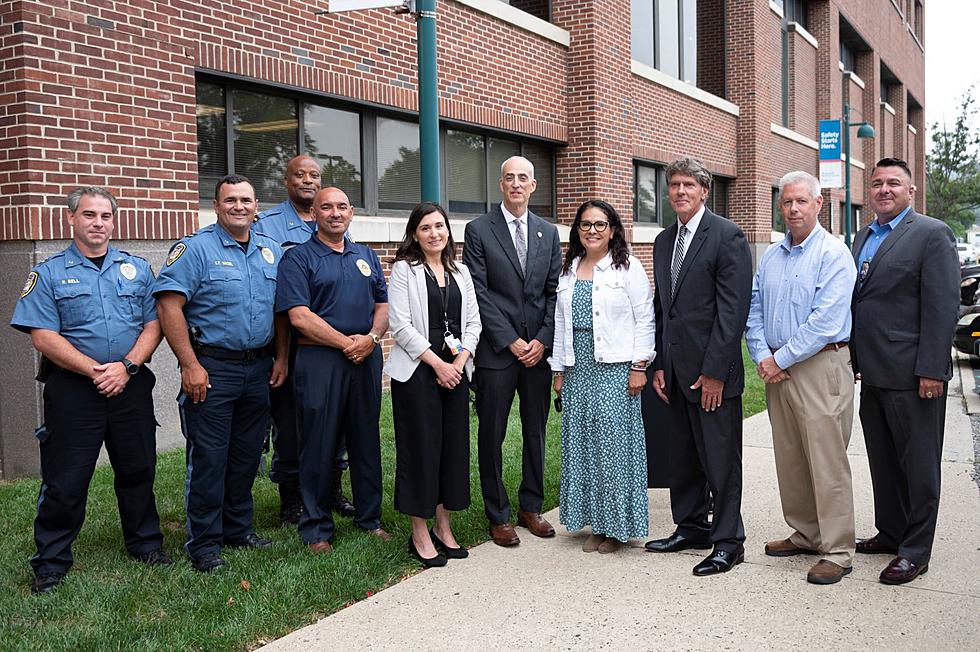
You are not alone — new moms healing by talking to others also struggling
This is the final segment of a three-part series examining the mental health challenges facing expectant and new moms in the Garden State.
Within 24 hours after childbirth, a woman's estrogen and progesterone levels drop rapidly, triggering chemical changes in the brain.
The physiological shift is unmatched by any other natural process in life, and its effects on one's emotional and mental state can be severe and life-altering, as evidenced each year by tens of thousands of New Jersey women feeling lost with a new baby in tow.
And many of these "lost" women, riddled with anxiety attacks or bouts of crying, perhaps harmful thoughts about the fate of their baby, fear what they're feeling and how they're acting must be wrong.
That's because, along with this unique and drastic shift comes an overwhelming lack of awareness, both on the part of outsiders — a mother's partner or family, for example — and the woman who's experiencing the warning signs herself.
"All you need is another woman to look across the room and say, 'I felt the same way you felt.' And that literally happens every week," said Carolyn Stack, a maternal wellness RN with the Center for Perinatal Mood and Anxiety Disorders at Monmouth Medical Center, which hosts group sessions weekly for moms battling depression and other pregnancy-related mood disorders.
For many mothers, an initial step in healing is knowing they are not alone, and not a "bad mom."
"Most are relieved that they found us, and found a place where there's other moms who are going through the same thing," said Ellen Ashinoff, a social worker at the center who handles patient intake. "Because they've been home, they've been feeling isolated, either their spouse doesn't understand what they're going through, their mother-in-law, their mother."
Perinatal mood and anxiety disorders, Stack said, can significantly strain relationships in the household. A lack of understanding or compassion on the part of a spouse only adds to the frustration.
"It helps to talk to somebody that's not in your household," said Natasha Giske, 34, of Hazlet, who had her first baby on March 8. "When you're talking to your husband, your boyfriend, whoever ... when you try to explain it, they can offer you a hug and that's it. But that's not what I need."
"To be exposed to other women who are experiencing the same thing I'm experiencing ... I can't imagine what my life would be like if I didn't find this place," said Lauren Kubas, of Tinton Falls, who was sent to the Center for PMAD after a postpartum visit with her obstetrician.
Know the signs
"It's okay to get help. You're not weak. Get rid of the pride. Don't be shameful, don't be embarrassed, because a lot more is going to happen if you don't seek the help," said Allison Faraone, of Oceanport, who continues to seek treatment and plans to pay it forward for future moms blindsided by anxiety and depression.
Knowing the signs and symptoms can help women, and those around them, recognize when it may be time to reach out for help. Symptoms, which can range from mild to severe, include:
- Sleeping too little/too much
- Loss of appetite
- Anxiety or panic attacks
- Feeling guilty or worthless
- Frequent crying or sadness
- Loss of interest or pleasure
- Excessive irritability
- Fear of being alone with baby
- Difficult bonding with baby
- Harmful thoughts
Known as the world's largest event for raising awareness of perinatal mood and anxiety disorders, Climb Out of the Darkness is coming to the Jersey Shore region for the first time later this year. The event Sept. 7 event in Ship Bottom, hosted by Manahawkin-based Postpartum to Powerful, and benefiting Postpartum Support International New Jersey, features free yoga classes, businesses owned by local moms, and speakers taking on everything motherhood.
All funds raised by the event will stay within the Garden State to help build resources, train providers and support new parents in the area.
More from 94.3ThePoint:
More From 94.3 The Point










